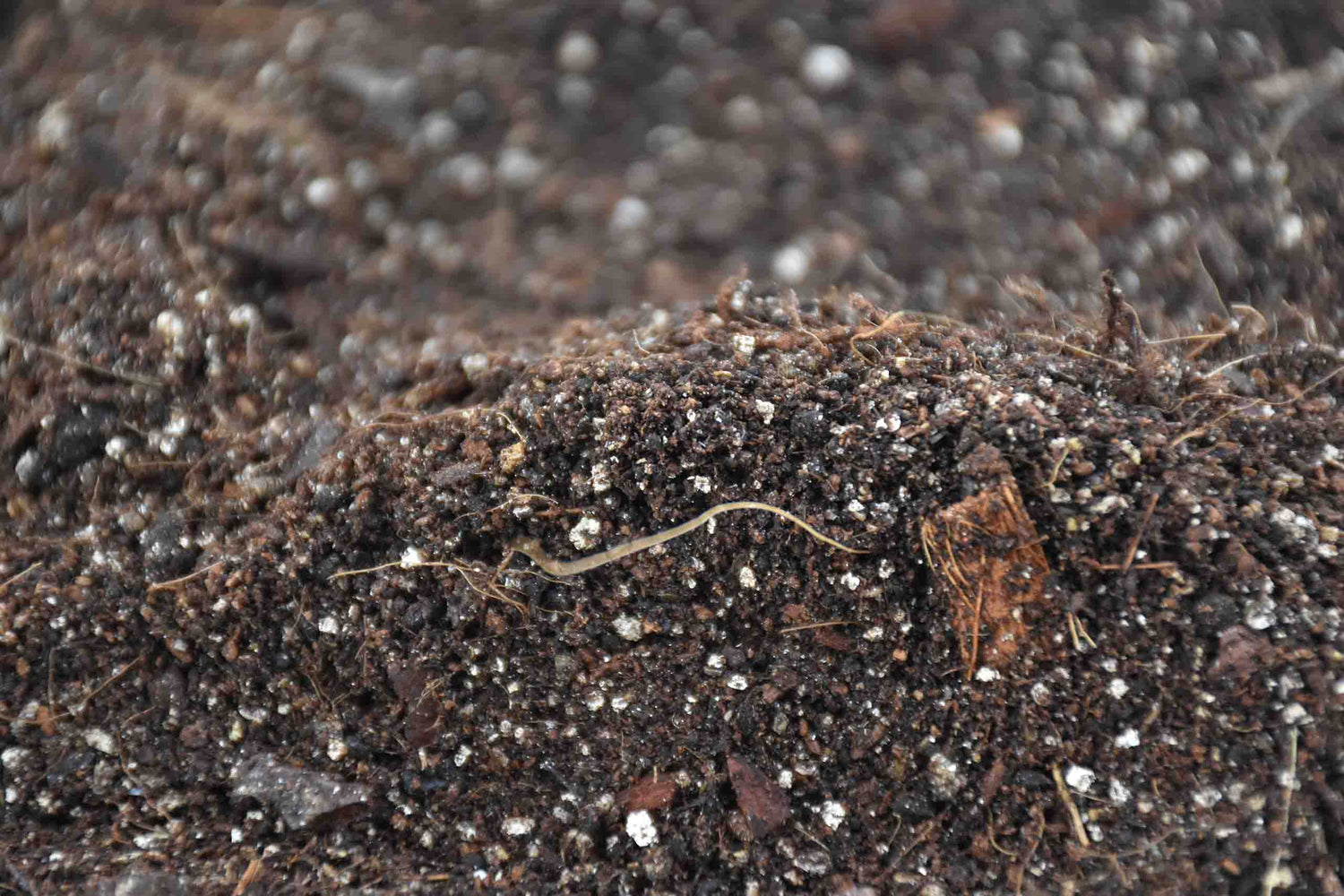
SYBASoil: Premium Soil Mixes
Soil Mixes That Truly Understand Your Plants Not all soil mixes are...

Soil Mixes That Truly Understand Your Plants Not all soil mixes are...
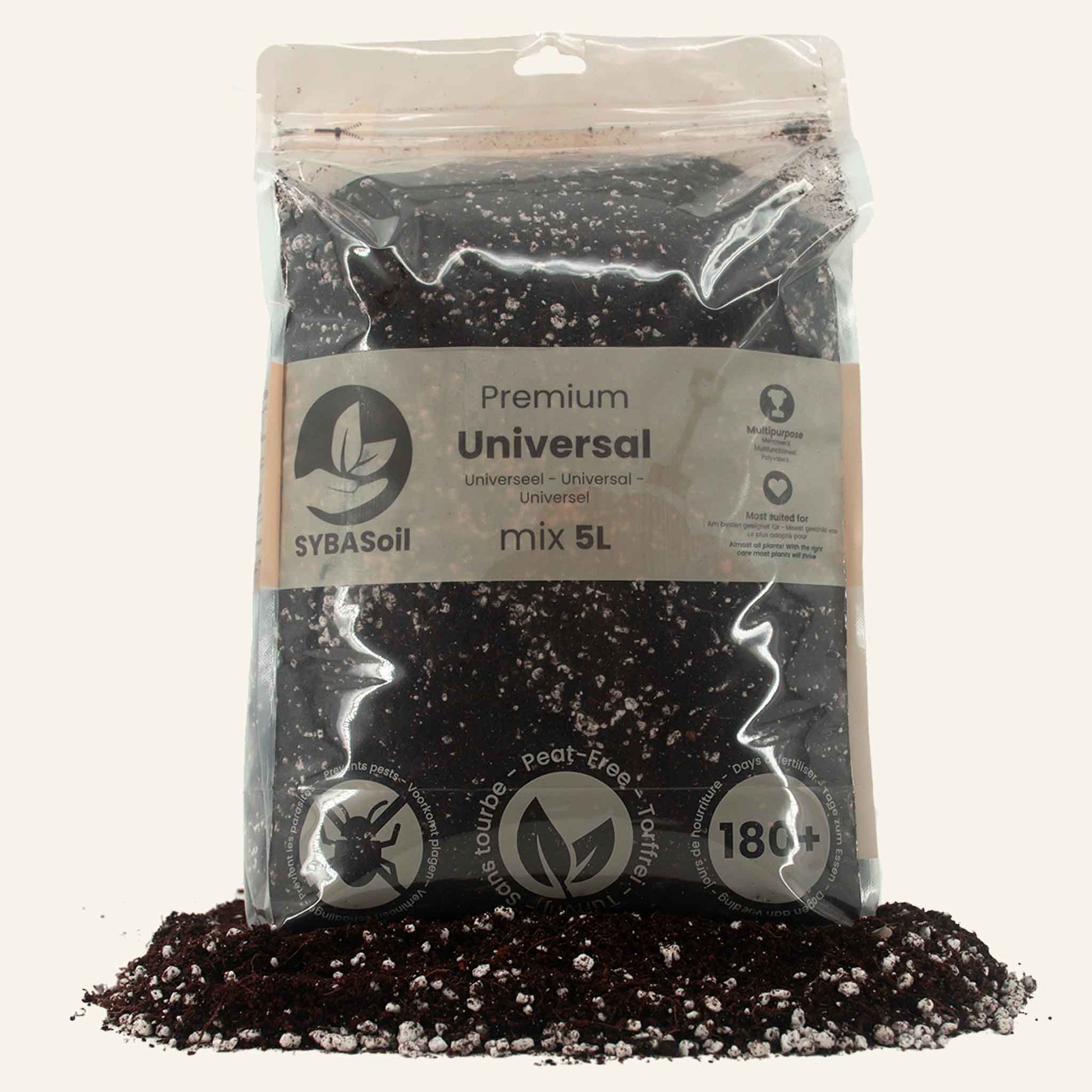
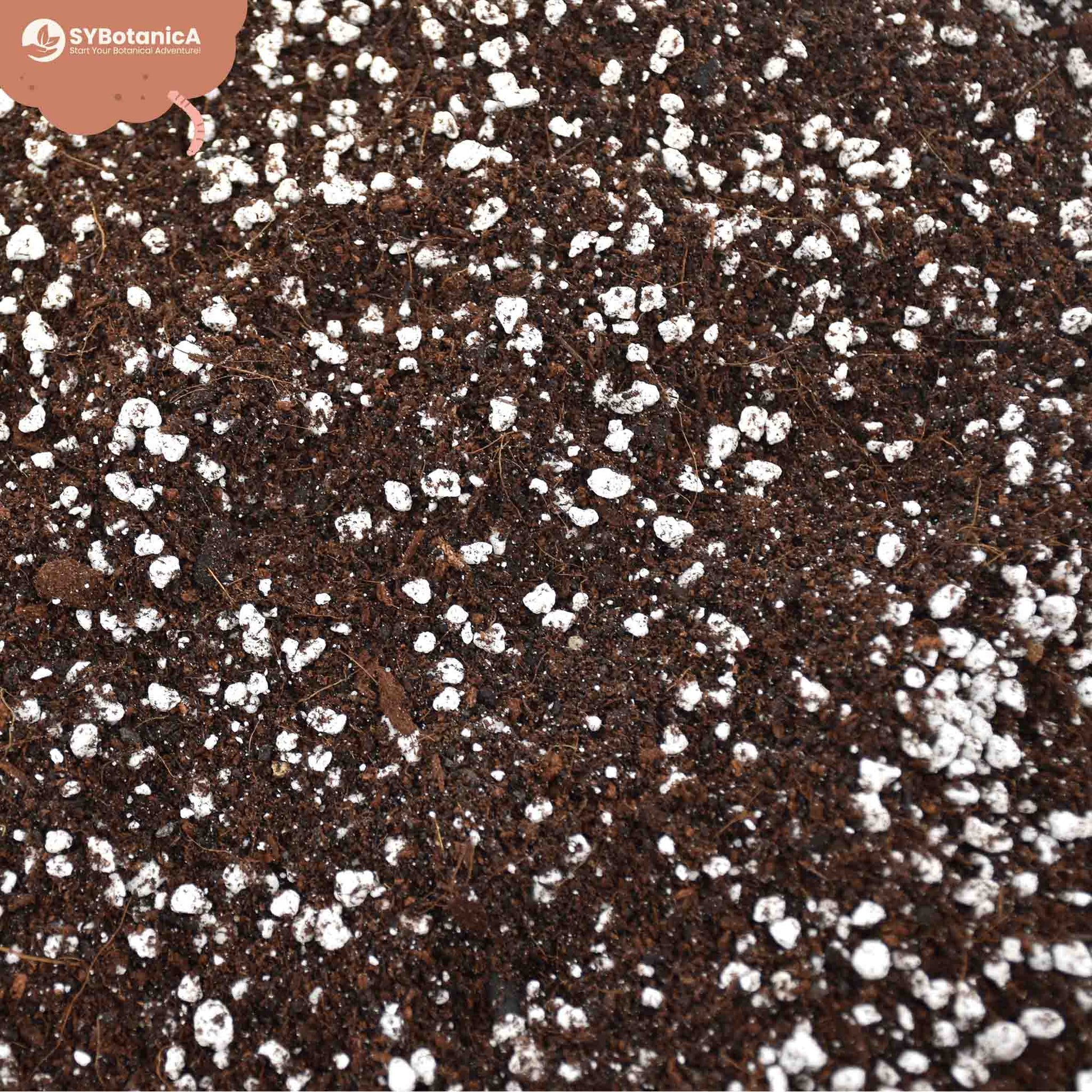
🥕 The Perfect Vegetable Soil for Healthy Growth & Happy Plants
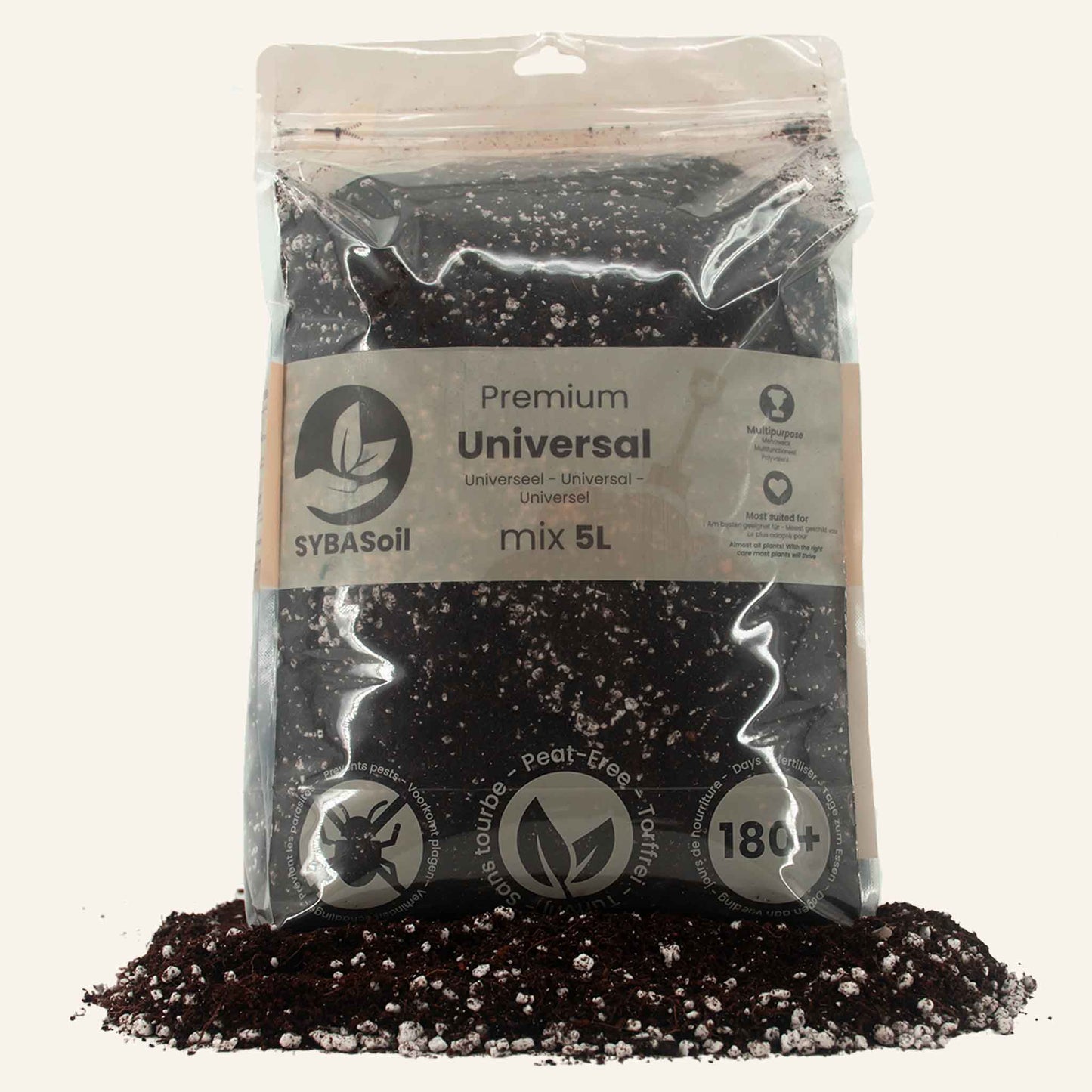
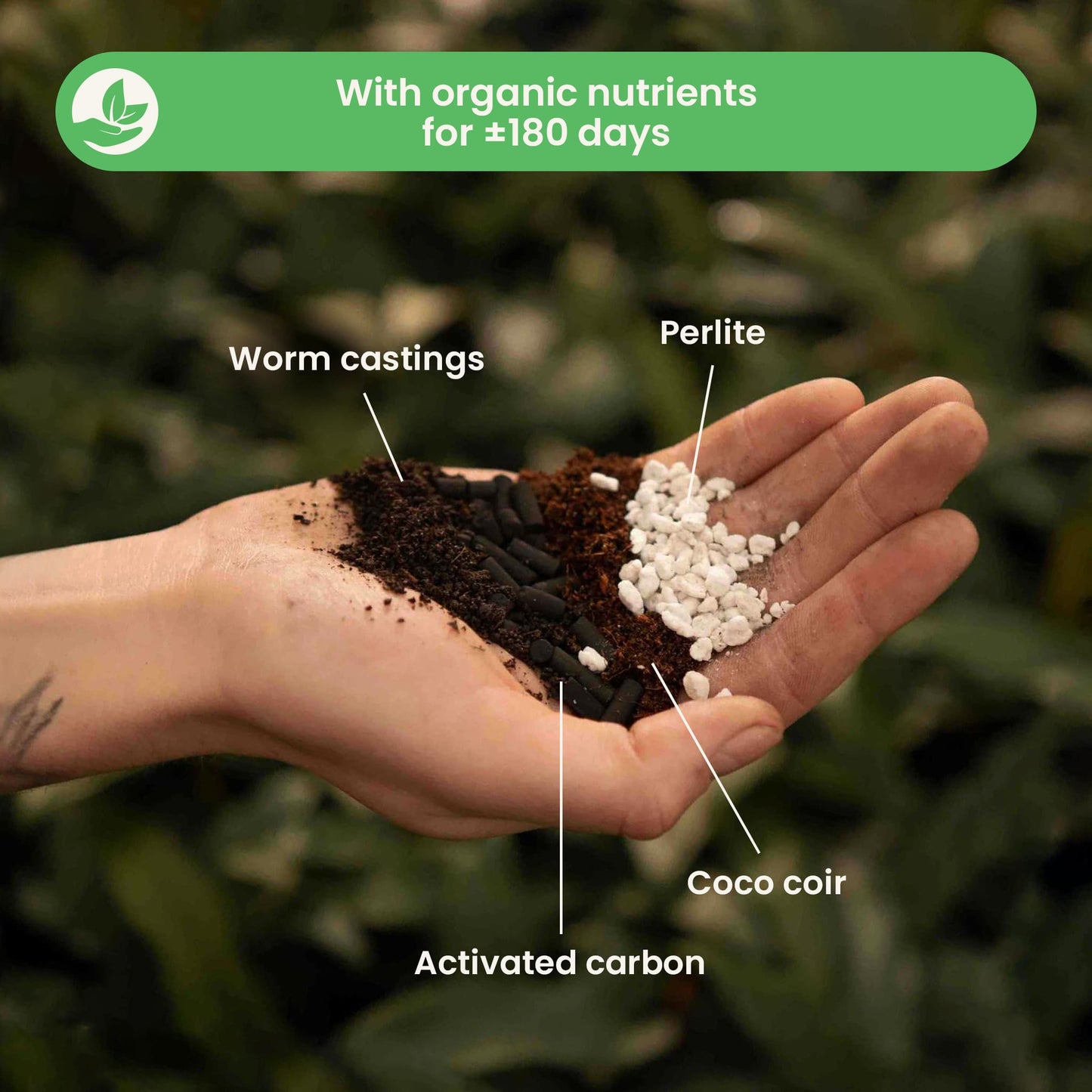
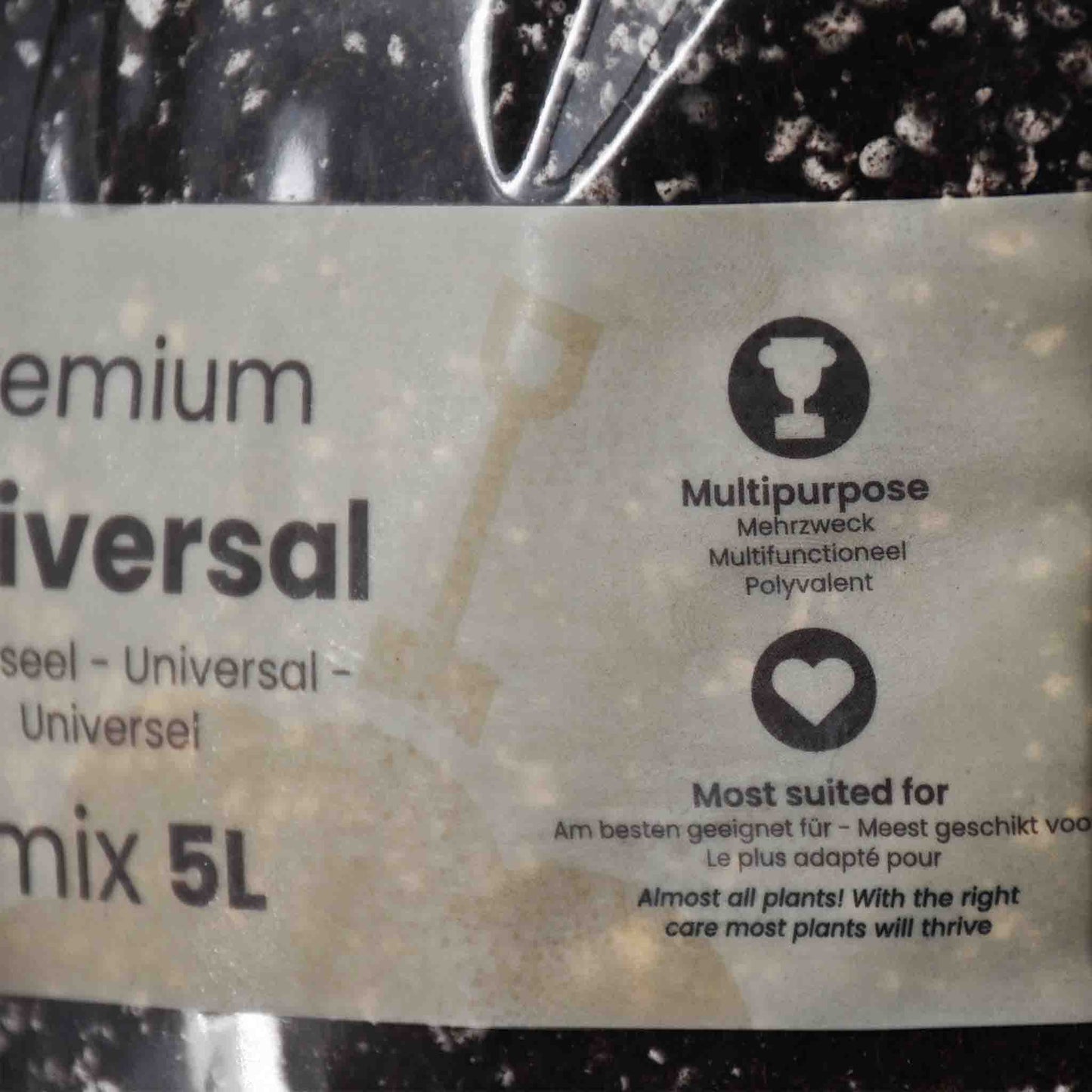
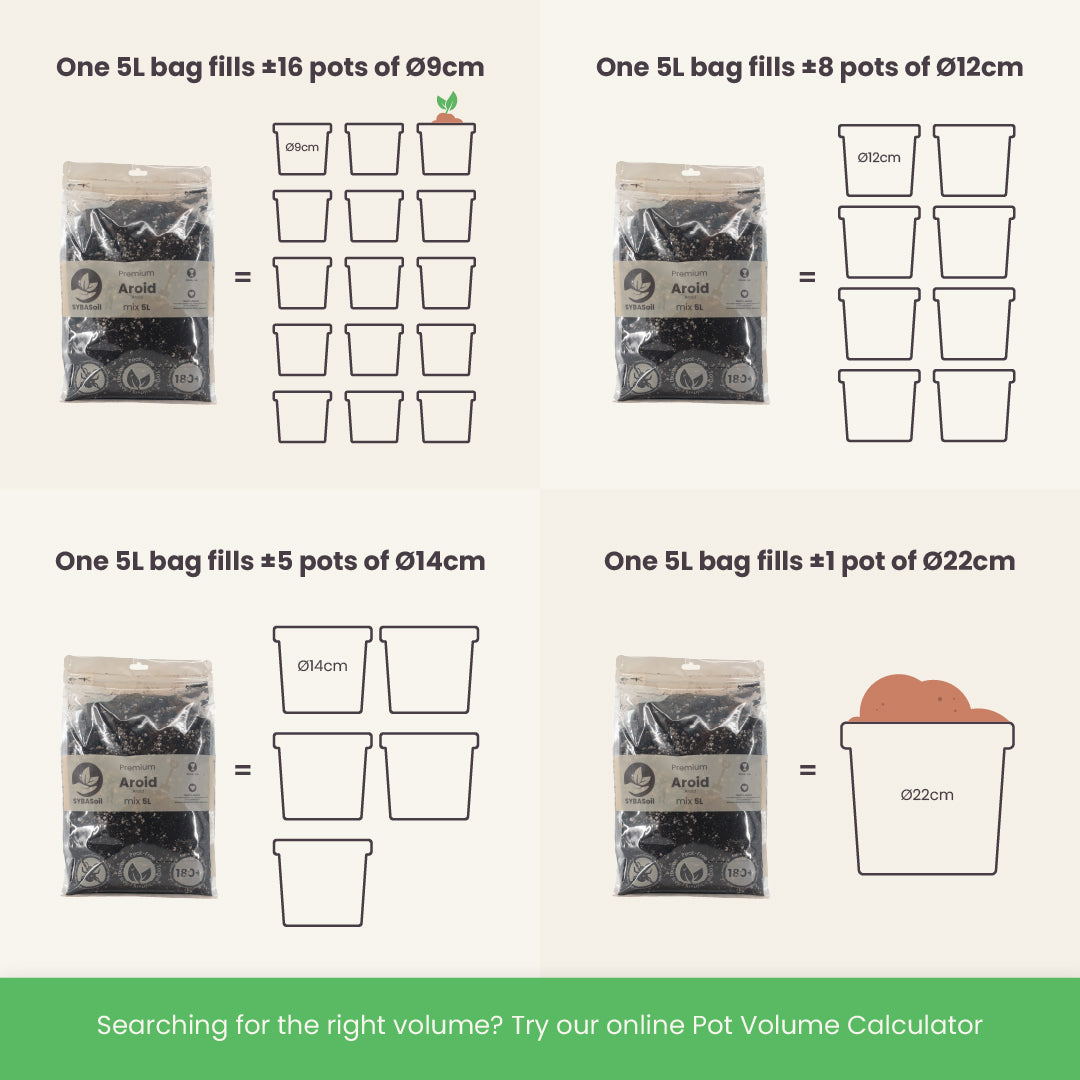
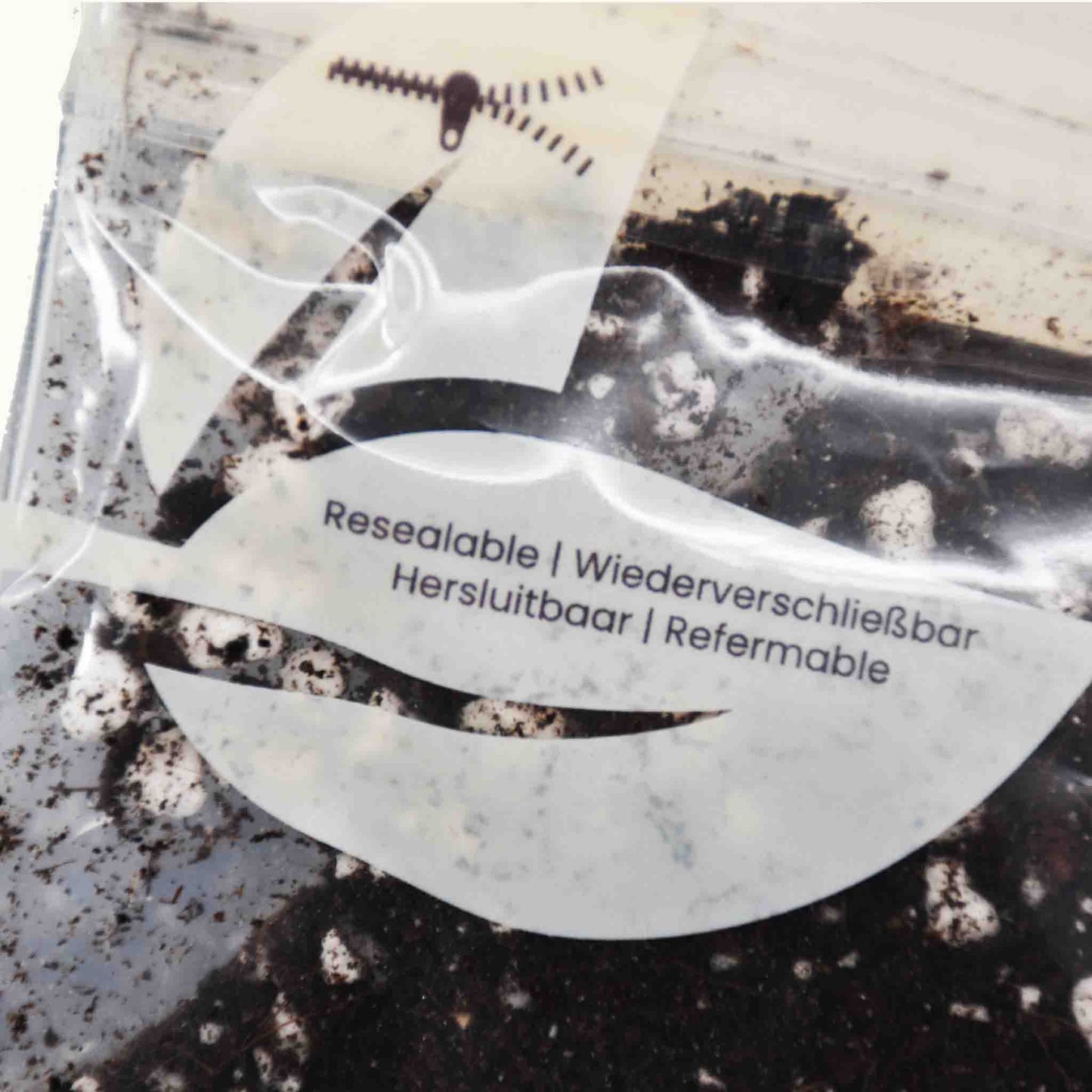
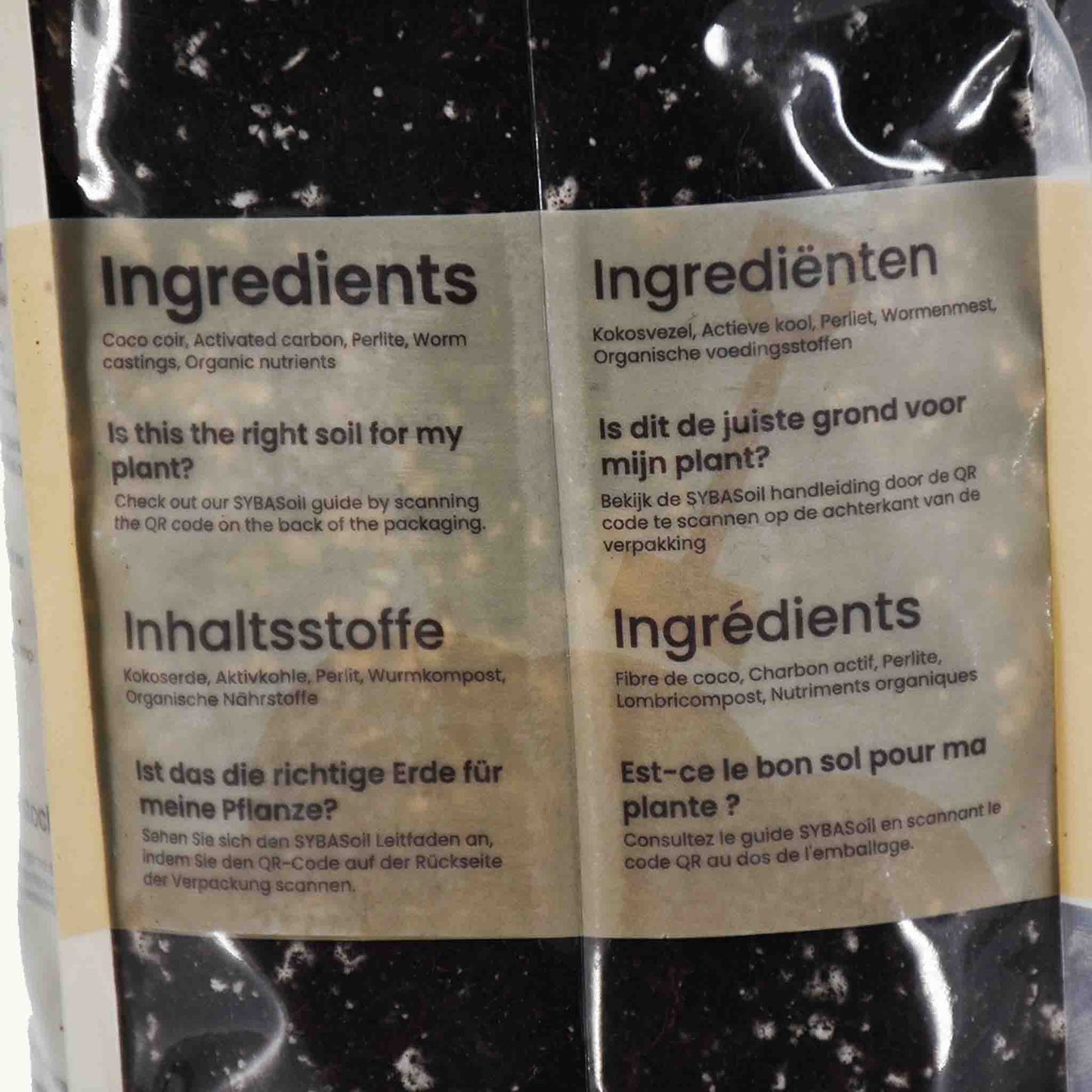
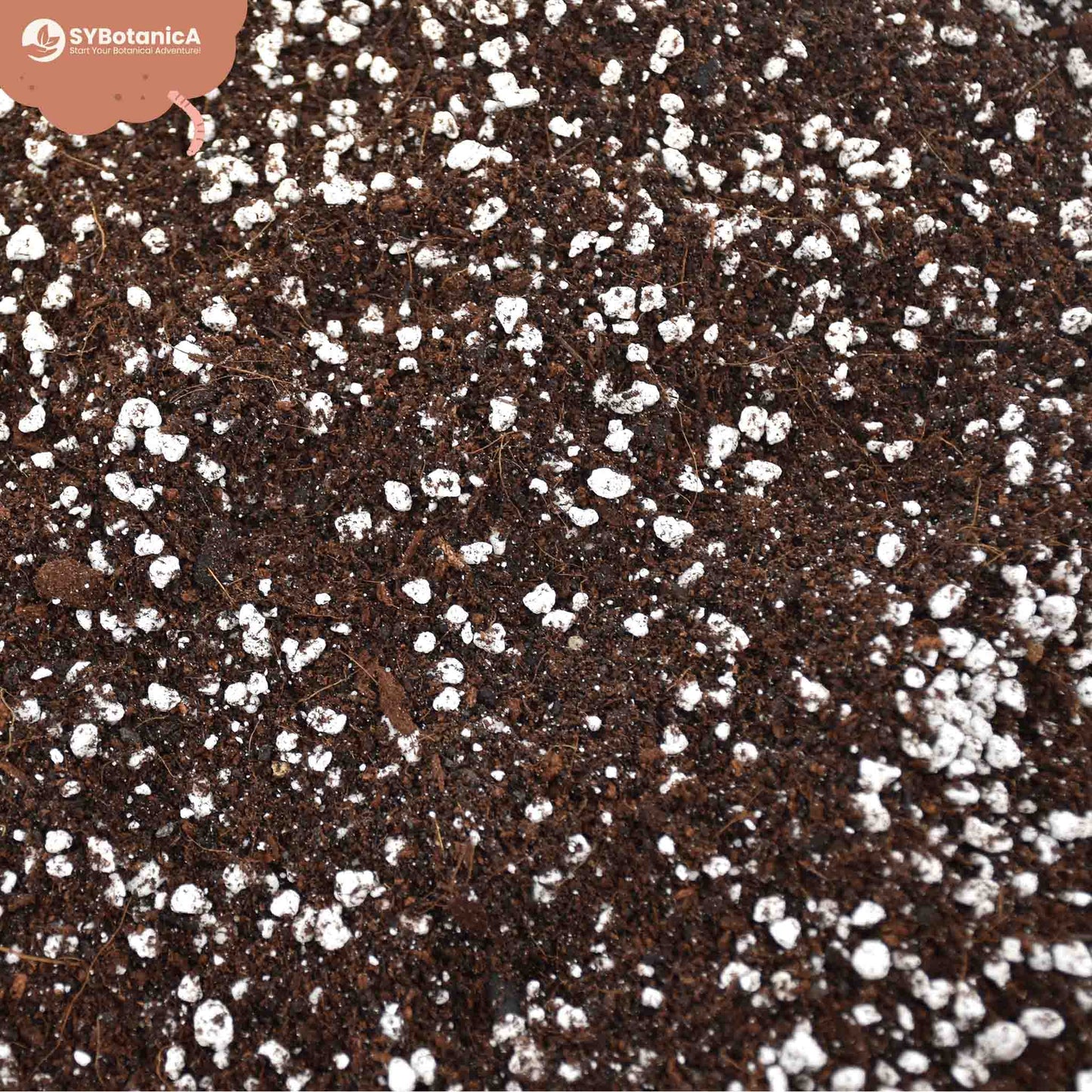
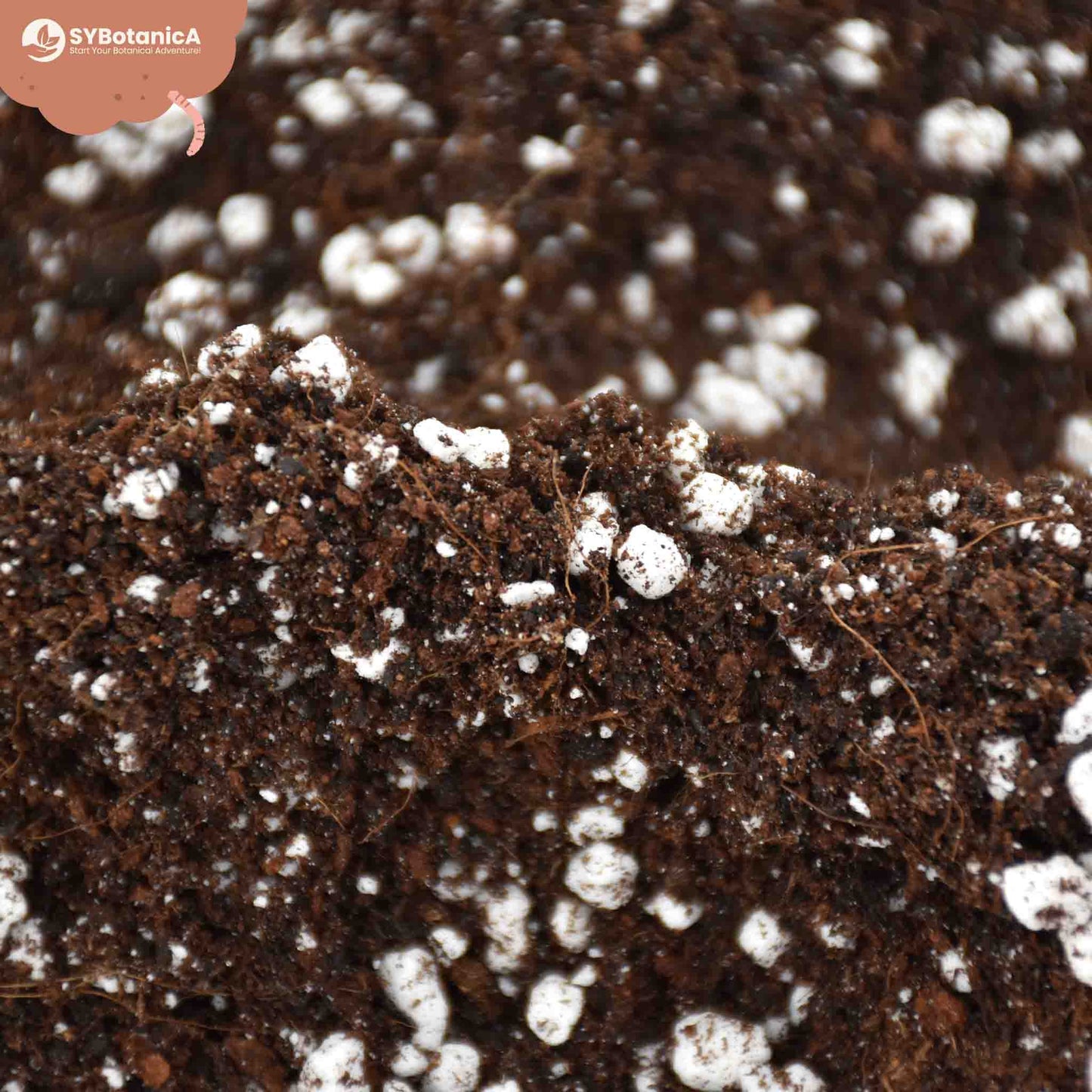
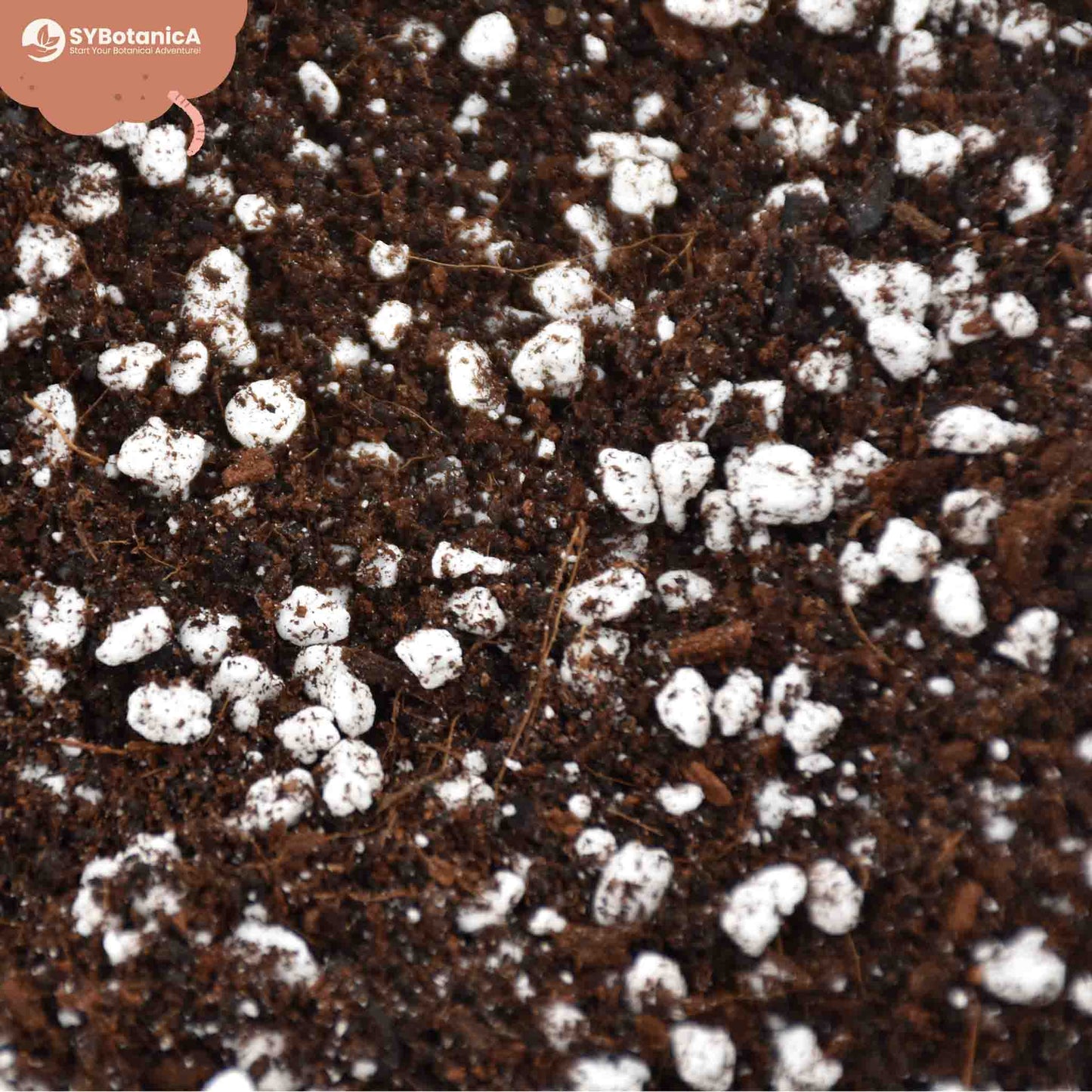

Same-day shipping! (On weekdays before 16:30)

~180 days of organic nutrients

Fair Production - Produced in-house in social workplace
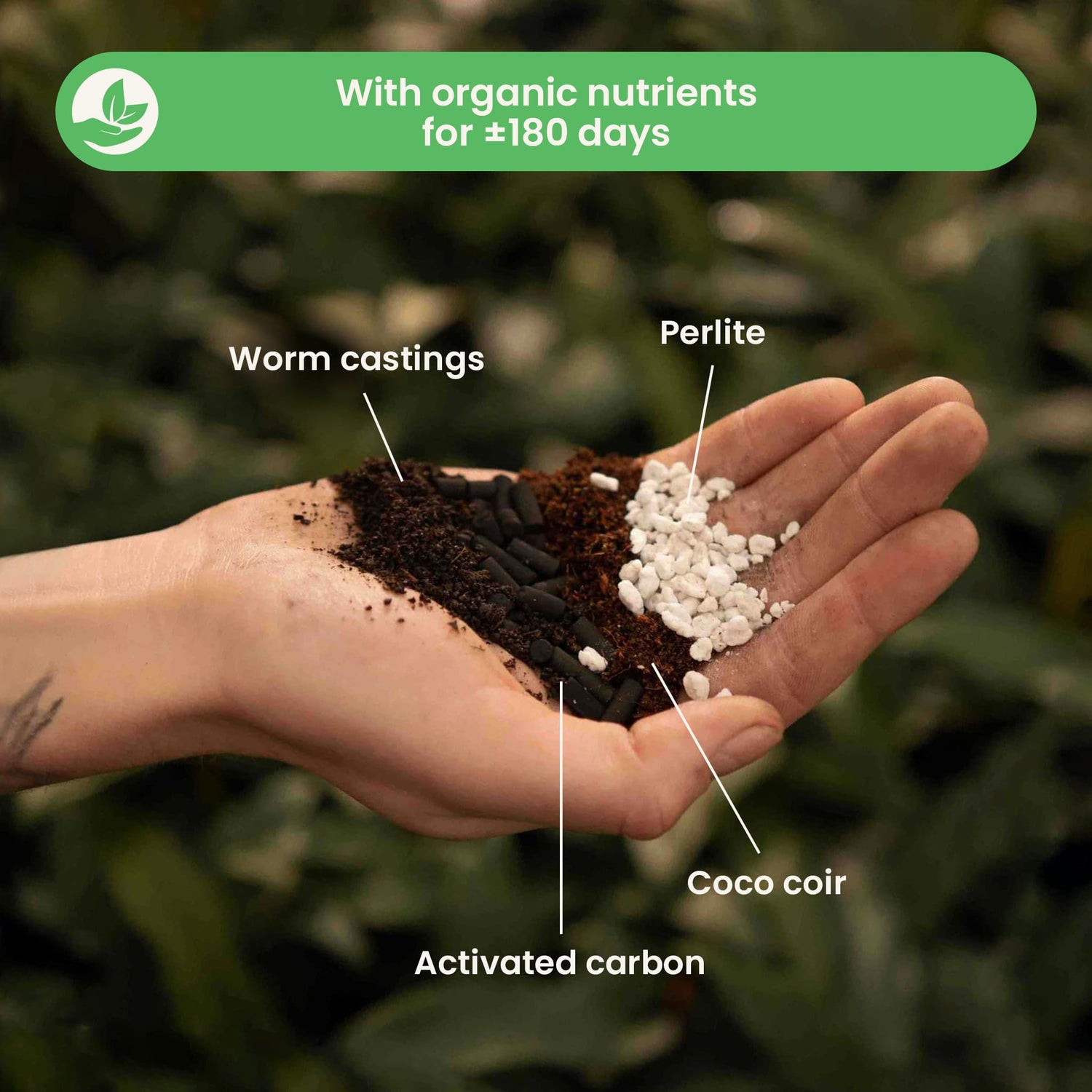
*From a survey answered by 1182 Customers using SYBASoil 30+ days.
Report no soil-based pests like Fungus Gnats or Root Aphids since using SYBASoil.
See stronger root & leaf growth within weeks.
Say watering their plants becomes noticably easier.
We guarantee a 100% satisfaction! Our mission is to help you get happy plants.
If for some reason we fail to do this, just contact us via info@sybotanica.com or return your items hassle-free within 30 days.
Not convinced? Check out our Trustpilot reviews
The nutrients in SYBASoil will run out in ~6 months on average.
We will advice you on the right fertiliser after doing our plant scan.
We recommend repotting once any of these things happen:
94.2% of customers report visibly stronger roots& leaf growth within a few weeks.
You will also notice that watering becomes a lot easier due to having the right soil structure.
It becomes too compact over time, leading to a state where it no longer absorbs water.
That's why we opt for coconut fiber and worm castings, keeping your potting soil delightfully airy and usable for much longer. Much more environmentally friendly in its use & less CO2!
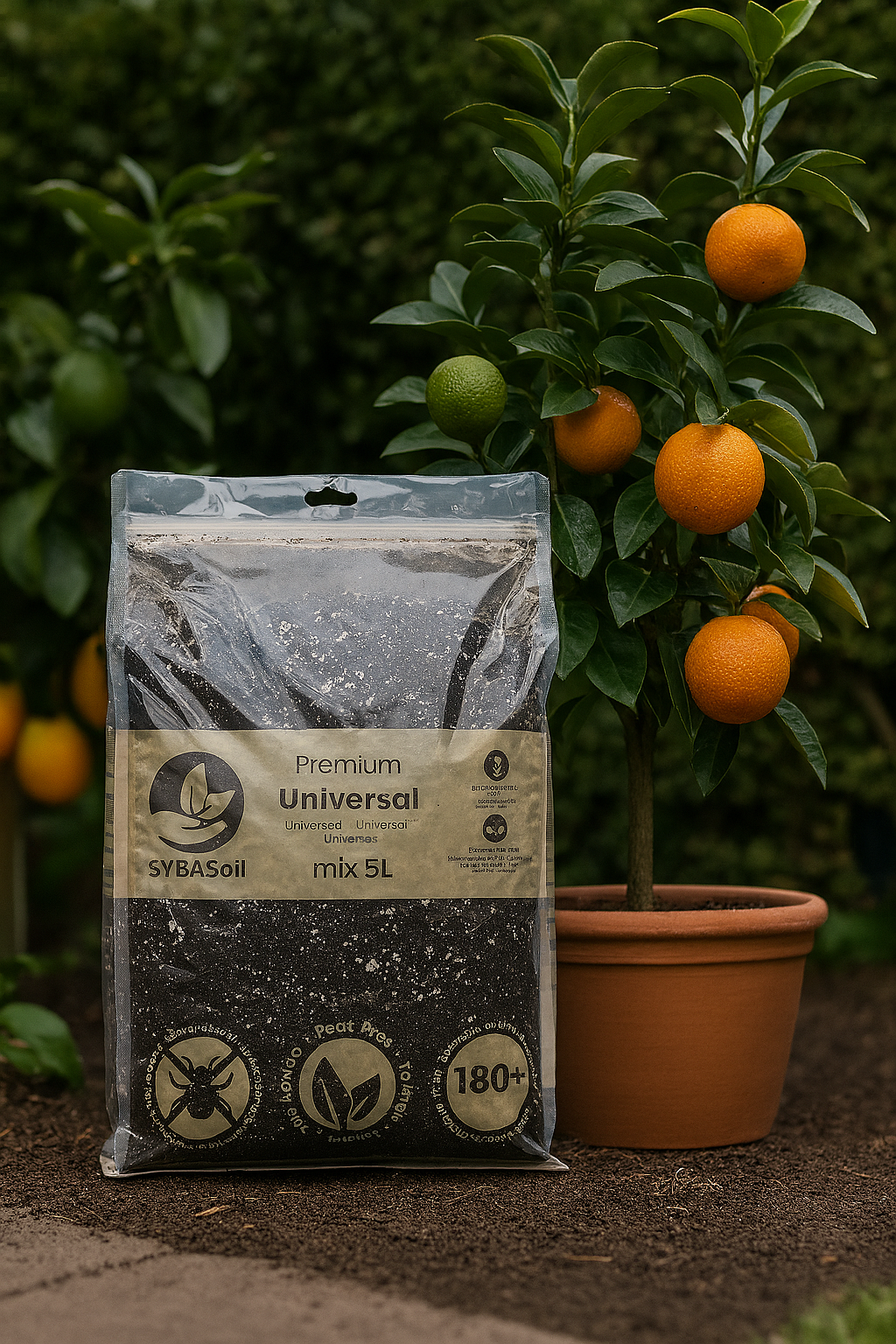
Your Vegetables deserve the same love
100% Satisfaction guarantee or money back
Whether you're planting leafy greens, root vegetables, or fruiting crops like peppers and cucumbers, success always starts with the right soil. Our Universal Mix was developed to support strong, healthy growth across a wide range of vegetables — from raised beds and garden rows to balcony containers and grow bags.
To use the mix, simply fill your planting area or container with Universal Mix, ensuring there’s adequate drainage. For container gardening, choose pots that are deep enough for root growth and include drainage holes. Press the mix down lightly, plant your seeds or seedlings, and water thoroughly to help the soil settle around the roots.
The beauty of this mix is its flexibility. It works well for quick-growing salad greens, deep-rooted carrots and beets, and even heavy-feeding crops like tomatoes and courgettes. You can use it straight from the bag for raised beds, mix it into poorer garden soil as an amendment, or use it to refresh tired potting soil between plantings.
Thanks to its structure and organic nutrition, Universal Mix creates the ideal environment for vigorous growth and generous harvests — even in compact urban spaces.
Vegetables need soil that balances three things: moisture retention, aeration, and consistent nutrient delivery. Universal Mix brings those three elements together in one well-rounded blend that works across nearly all common vegetable types.
Here’s what makes it so effective:
Coco coir – Acts as a moisture manager. It holds water like a sponge but also releases it gradually, keeping the root zone evenly hydrated. This is key for vegetables that dislike drying out, like lettuce and spinach, as well as those prone to cracking, like radishes or tomatoes.
Worm castings – These are the natural superfood of the garden. Rich in beneficial microbes and gentle nutrients, worm castings help stimulate seed germination, boost root growth, and improve overall plant resistance to disease. For vegetables, they offer a steady supply of nitrogen and trace elements without overwhelming tender roots.
Perlite – Keeps the soil loose and well-aerated, preventing compaction. For fast-growing crops, this encourages deeper roots and better nutrient absorption, leading to stronger stems and higher yields.
Lava gravel – A natural source of slow-releasing minerals like calcium, magnesium, and iron — essential for long-term plant health and structural growth. It also improves drainage, which is especially helpful in densely planted beds or planters.
Activated carbon – Improves soil purity by absorbing excess salts and toxins, which can build up in container soil. It also supports healthy microbial activity, keeping your soil “alive” and balanced.
Organic nutrients – A well-rounded supply of macro- and micronutrients that fuels vegetables through their full life cycle — from early leaf growth to flowering and fruiting. The slow-release formula means fewer interventions are needed throughout the season.
Together, these ingredients create a productive, balanced growing medium that gives your vegetables a solid, supportive foundation.
Vegetables as a group come from a wide range of natural habitats — from Mediterranean herbs to tropical tubers and cool-climate greens. But regardless of origin, most share one common requirement: well-draining, nutrient-rich soil that isn’t too heavy or too sandy.
In their native environments, vegetables evolved in soil that received regular inputs of organic matter (like compost or leaf litter), had plenty of microbial life, and allowed water to drain freely after rainfall. These conditions are difficult to recreate in containers or modern garden beds without the right soil mix.
Universal Mix was designed to mimic those productive, biologically active soils. It provides a mix of organic content and mineral components that feels loose to the touch, drains well, but also holds just enough water to keep roots happy between waterings.
Whether you're growing in the ground, on a balcony, or in a greenhouse, Universal Mix brings your vegetables back to the conditions they evolved to thrive in — even if you're growing them halfway around the world.
Caring for vegetables can vary depending on the type, but the fundamentals are always the same: sun, water, soil, and a bit of patience. Here’s a basic care guide that works for most crops:
Light: Most vegetables need full sun — at least 6 to 8 hours of direct light per day. Leafy greens can tolerate some shade, but root and fruiting vegetables will always perform better in bright conditions.
Watering: Keep the soil consistently moist, especially during the seedling stage and when fruits are forming. Water deeply to encourage strong roots but avoid frequent shallow watering, which leads to weak growth.
Feeding: Although Universal Mix includes long-lasting nutrients, heavy-feeding crops like tomatoes, peppers, and squash may benefit from additional feeding later in the season. Use a natural (vegetable) fertilizer every few weeks as needed.
Weeding: In garden beds, remove weeds regularly to reduce competition for nutrients and water. In containers, weeds are less common but still worth watching for.
Pests and disease: Inspect plants weekly for signs of aphids, slugs, or fungal issues. Use natural pest control methods like neem oil or companion planting to keep problems in check.
Harvesting: Pick vegetables regularly to encourage continued production. Leafy greens can often be cut multiple times, while fruiting crops should be harvested once ripe to avoid stress on the plant.
By starting with a rich, balanced soil like Universal Mix, you simplify everything. Your vegetables get the water, nutrition, and structure they need — so you can focus on harvesting baskets of fresh, delicious food.